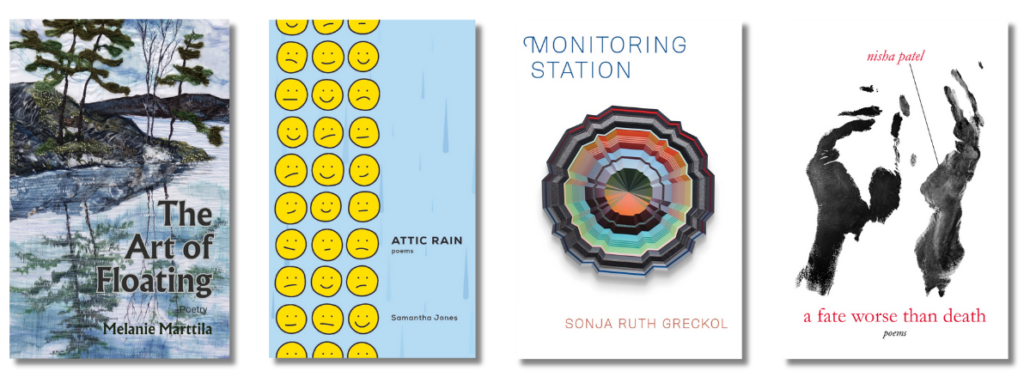
Back when I was a teenager, I spent a lot of time reading poetry.
I loved watching poets work their magic on the page. I marvelled at the way they were able to sidestep the traditional rules of sentence structure in order to capture an idea, an impression, a mood. I was so inspired by what I was reading, in fact, that I actually made an attempt to write some poetry of my own, sending a handful of poems to a 1970s-era literary journal. I will always be grateful to the editors of that journal for being kind and gentle with my teenaged writing self, rejecting my poems (which were, in fact, pretty terrible) while encouraging me to keep writing (which, I did).
Then, for whatever reason, I stopped reading poetry for a couple of decades. Poetry simply didn’t show up on my radar until, suddenly, it did. During the early months of the pandemic, when so much of what we were experiencing seemed to defy words, I watched in awe as poets found ways to say the unsayable. I started reading poetry again.
In recent months, I’ve been devouring poetry collections written by Canadian women. What follows are mini-reviews of four new, or recent, poetry collections that captured my attention and that are definitely worthy of yours.

The Art of Floating by Melanie Marttila (Latitude 46)
“Writing is as much an act of destruction or dissection as it is of creation,” writes Melanie Marttila in the epilogue of this deeply moving and thought-provoking poetry collection.
Writers take things apart in order to figure out how to put everything back together in just the right way. And, in between, there’s a lot of messiness. So much messiness…. As she notes in the poem that serves as the epigraph to her collection, “it’s messy / getting to the heart / of things.” This is a collection about doing just that: writing about what matters — the beauty and the brokenness of the world.
Attic Rain by Samantha Jones (NeWest Press)
Calgary-based writer and earth scientist Samantha Jones describes the poems in this collection as “autobiographical works that explore obsessive-compulsive disorder (OCD),” based on her own lived experience.
The poems — and the accompanying illustrations that are sprinkled throughout the book — document the experience of obsessive thinking: the repeated spiralling around worries that may change or evolve but that never seem to go away; how it feels to be “stranded / in your own catastrophe,” as she puts it. The result is a remarkably creative collection that will resonate with anyone who has ever wrestled with oversized worries at 3 a.m.
Monitoring Station by Sonja Ruth Greckol (University of Alberta Press)
Greckol demonstrates a remarkable ability to capture the feeling of a particular moment — the early months of the pandemic, for example — while simultaneously looping outward in time.
This is a book about the death of a mother, the birth of a granddaughter, the backdrop of daily catastrophe (climate change, genocidal wars, racial injustice, and more), the beauty of the natural world, and the numerous other joys and heartbreaks that are baked into the experience of being human. The poems in this collection circle around one another, creating a dizzying sense of both timeliness and timelessness.
A Fate Worse Than Death by Nisha Patel (Arsenal Pulp Press)
Nisha Patel (a Poet Laureate Emeritus of the City of Edmonton) explores what it’s like to navigate the world as a disabled person, using her own medical records as a starting point for her interrogations.
Whether she’s turning medical memos into erasure poetry, pushing against one-size-fits-all self-help advice, or documenting her symptoms via clinical notes, X-rays, or diagrams, she demonstrates that poetry can be a powerful form of resistance. The result is an innovative and thought-provoking collection that challenges harmful and reductive mainstream narratives about disability.








